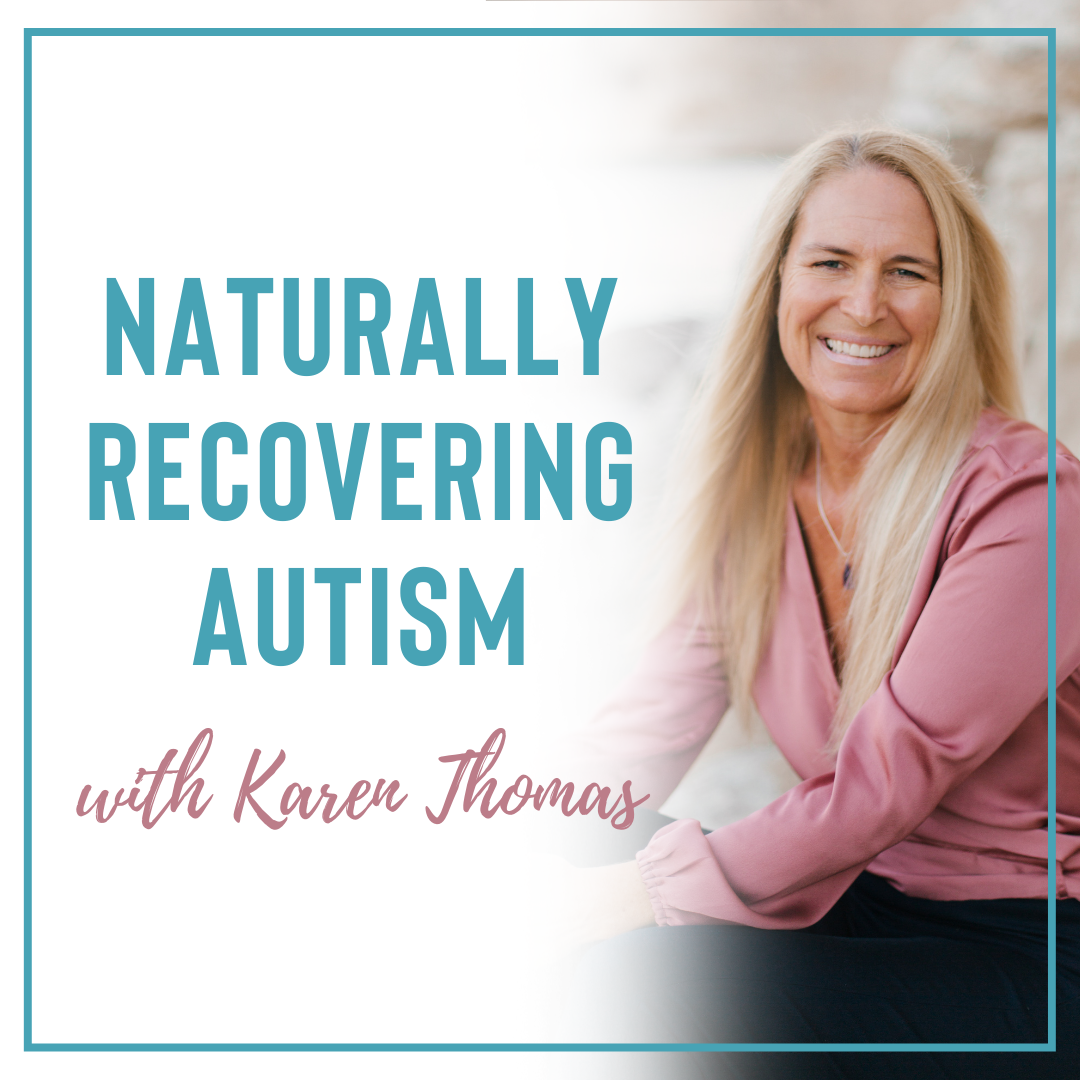

177.1K
Downloads
242
Episodes
Inspiring parents with natural solutions to create the most fulfilling, healthy and productive life possible for their children with autism. Empowering Parents with the Resources to Naturally Recover Autism from a mom who has done it. Having once been told her son could not recover from his symptoms of autism Karen Thomas now shares what she has learned through over a decade of personal research and experience that has brought her own son to recovery. Her background as a Craniosacral Therapist allowed her the awareness that the brain could heal if given the right support. Learn how you can allow your child a clear path for a happier and more fulfilling life with improved communication, better sleep, improved social abilities, and overall improved health. Get your FREE GUIDE to the top 7 foods to eliminate from your child's diet for better sleep, calmer moods, improved focus and speech at, NaturallyRecoveringAutism.com /7foods For more resources go to, NaturallyRecoveringAutism.com
Episodes
![The Hidden Risks of Eating Soy [Podcast Episode #212]](https://pbcdn1.podbean.com/imglogo/ep-logo/pbblog1796738/Episode_Naturally_Recovering_Autismahvu2_300x300.jpg)
Wednesday Jan 22, 2025
The Hidden Risks of Eating Soy [Podcast Episode #212]
Wednesday Jan 22, 2025
Wednesday Jan 22, 2025
While soy has its place in the diets of many cultures, modern soy consumption, particularly in the West, may come with a host of concerns that are worth understanding. From genetic modification to hormonal disruption, let’s dive into why eating soy might not be as healthy as you’ve been led to believe.
When it comes to healthy eating, soy is often marketed as a superfood—a plant-based protein alternative that’s good for your body and the planet. But beneath this lies a more complicated truth.
The Problem with Genetically Modified Soy
One of the biggest issues with soy today is that the majority of crops are genetically modified (GM). In fact, around 90-95% of soybeans grown in the United States are genetically engineered.
These modifications are designed to make soy crops resistant to herbicides like glyphosate, the active ingredient in Roundup. While this might seem like a win for agricultural efficiency, it has some troubling implications for your health and the environment.
Glyphosate exposure has been linked to a variety of health concerns, including endocrine disruption, cancer, and gut microbiome imbalances.
When you consume products made from genetically modified soy, you’re also potentially ingesting residual glyphosate. Over time, this can accumulate in your body, contributing to chronic health problems.
Additionally, genetically modified organisms (GMOs) are often associated with monoculture farming practices, which deplete soil nutrients, harm biodiversity, and contribute to ecological imbalances.
By consuming genetically modified soy, you’re indirectly supporting an agricultural system that may be unsustainable in the long term...
Click Here or Click the link below for more details!
No comments yet. Be the first to say something!